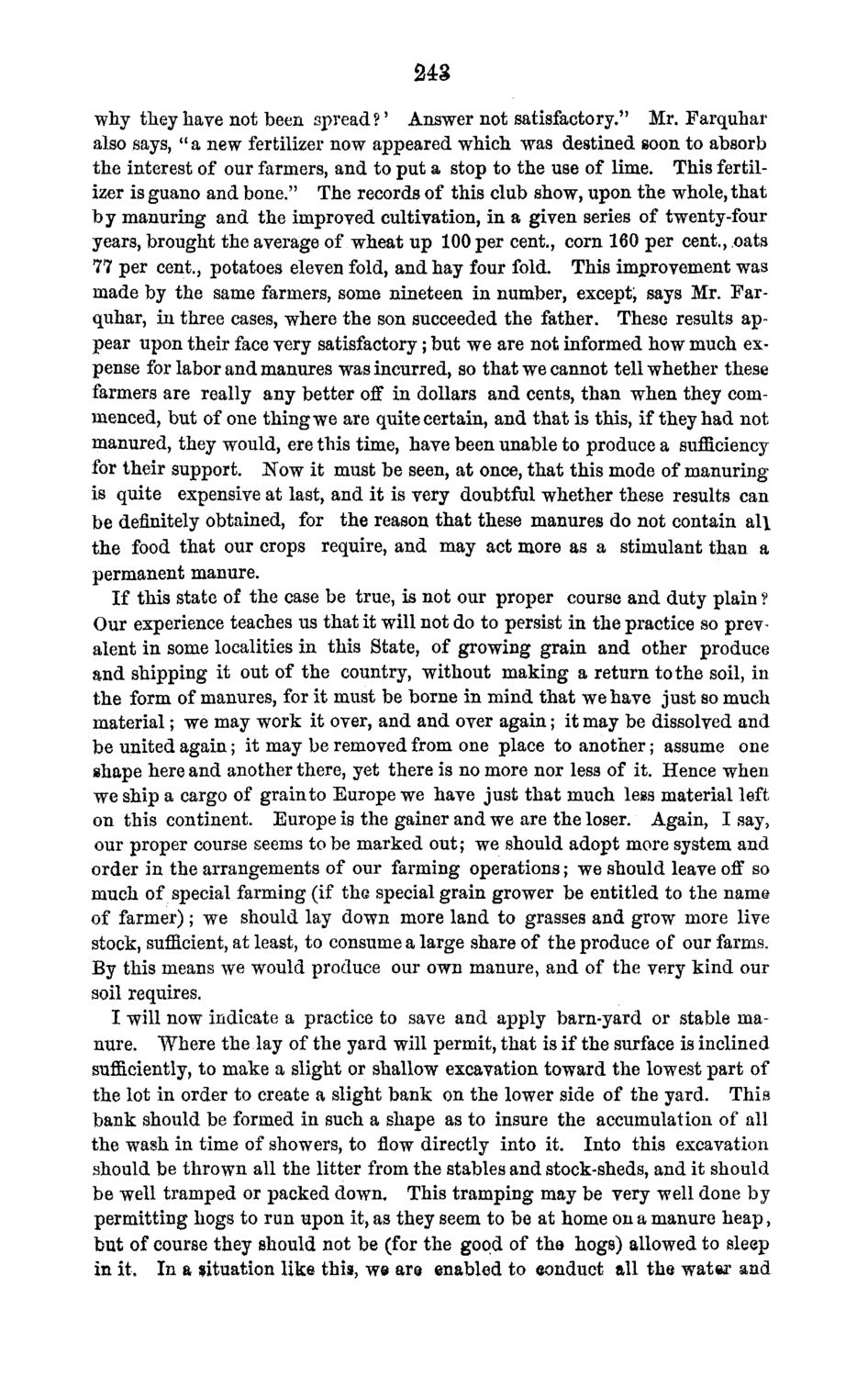| |
| |
Caption: Board of Trustees Minutes - 1870
This is a reduced-resolution page image for fast online browsing.

EXTRACTED TEXT FROM PAGE:
24:3 why they have not been spread?' Answer not satisfactory." Mr. Farquhar also says, "a new fertilizer now appeared which was destined soon to absorb the interest of our farmers, and to put a stop to the use of lime. This fertilizer is guano and bone." The records of this club show, upon the whole, that by manuring and the improved cultivation, in a given series of twenty-four years, brought the average of wheat up 100 per cent., corn 160 per cent., oats 77 per cent., potatoes eleven fold, and hay four fold. This improvement was made by the same farmers, some nineteen in number, except; says Mr. Farquhar, in three cases, where the son succeeded the father. These results appear upon their face very satisfactory; but we are not informed how much expense for labor and manures was incurred, so that we cannot tell whether these farmers are really any better off in dollars and cents, than when they commenced, but of one thing we are quite certain, and that is this, if they had not manured, they would, ere this time, have been unable to produce a sufficiency for their support. Now it must be seen, at once, that this mode of manuring is quite expensive at last, and it is very doubtful whether these results can be definitely obtained, for the reason that these manures do not contain all the food that our crops require, and may act more as a stimulant than a permanent manure. If this state of the case be true, is not our proper course and duty plain ? Our experience teaches us that it will not do to persist in the practice so prevalent in some localities in this State, of growing grain and other produce and shipping it out of the country, without making a return to the soil, in the form of manures, for it must be borne in mind that we have just so much material; we may work it over, and and over again; it may be dissolved and be united again; it may be removed from one place to another; assume one shape here and another there, yet there is no more nor less of it. Hence when we ship a cargo of grain to Europe we have just that much less material left on this continent. Europe is the gainer and we are the loser. Again, I say, our proper course seems to be marked out; we should adopt more system and order in the arrangements of our farming operations; we should leave off so much of special farming (if the special grain grower be entitled to the name of farmer); we should lay down more land to grasses and grow more live stock, sufficient, at least, to consume a large share of the produce of our farms. By this means we would produce our own manure, and of the very kind our soil requires. I will now indicate a practice to save and apply barn-yard or stable manure. Where the lay of the yard will permit, that is if the surface is inclined sufficiently, to make a slight or shallow excavation toward the lowest part of the lot in order to create a slight bank on the lower side of the yard. This bank should be formed in such a shape as to insure the accumulation of all the wash in time of showers, to flow directly into it. Into this excavation should be thrown all the litter from the stables and stock-sheds, and it should be well tramped or packed down. This tramping may be very well done by permitting hogs to run upon it, as they seem to be at home on a manure heap, but of course they should not be (for the good of the hogs) allowed to sleep in it. In a situation like this, we are enabled to conduct all the water and
| |